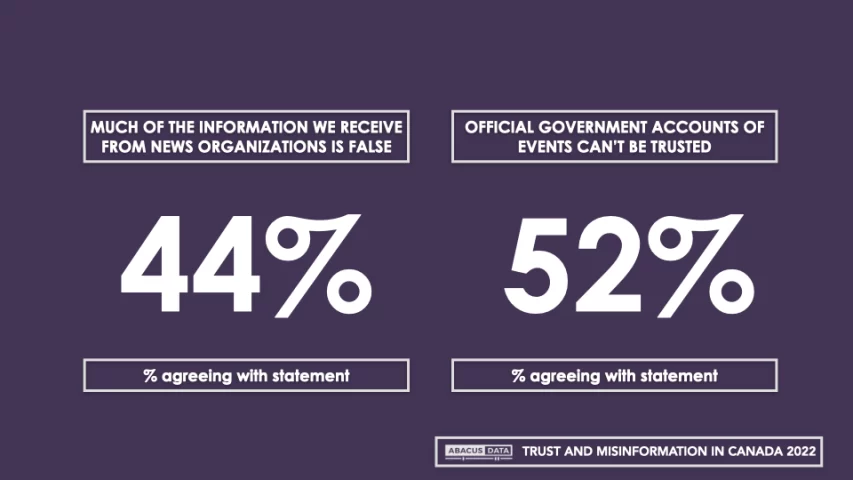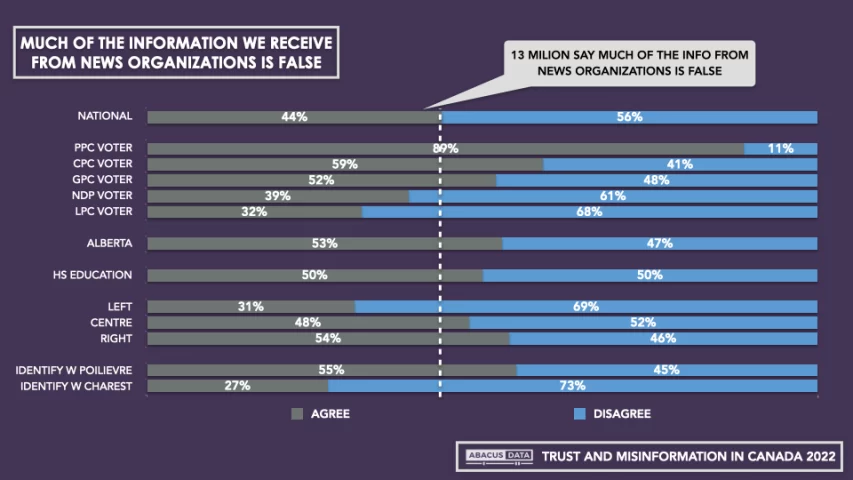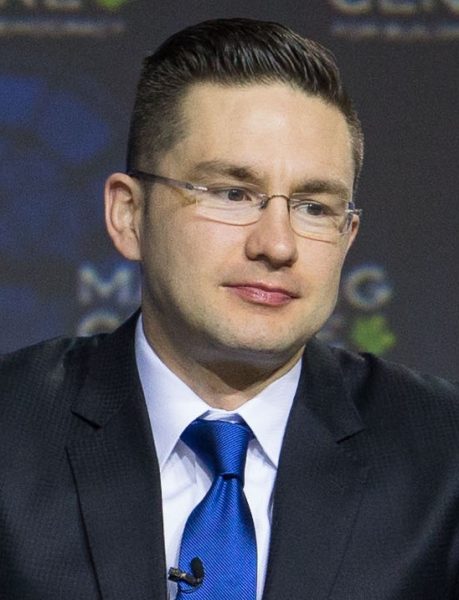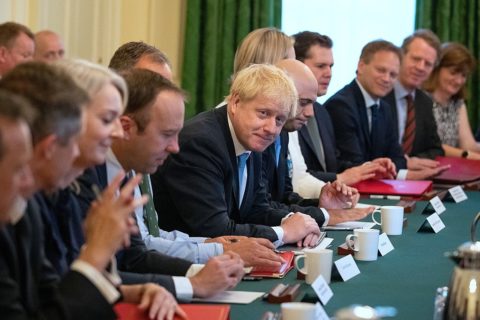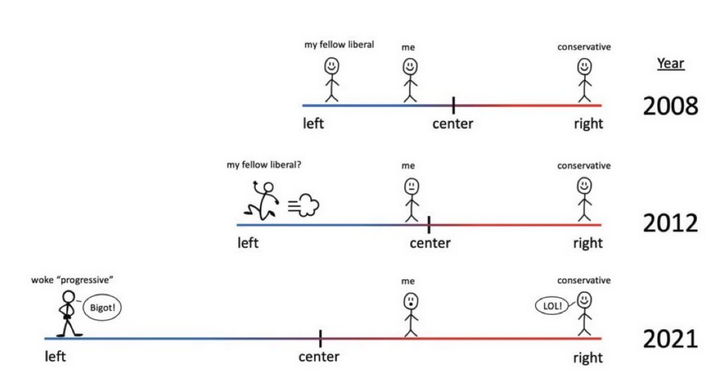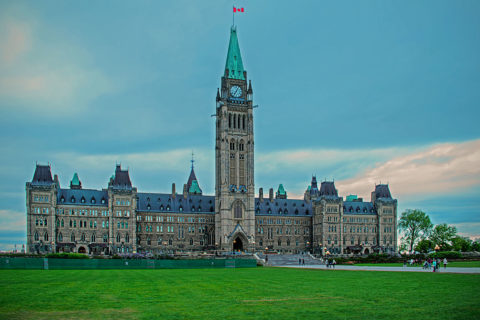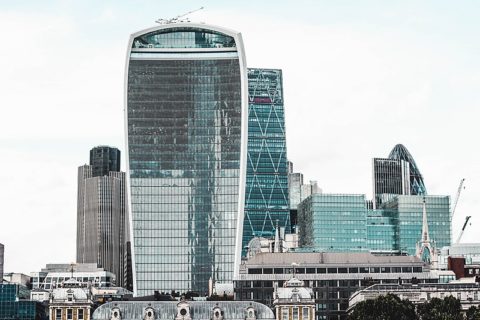In The Line, Rahim Mohamed discusses how the Poilievre family makes it difficult for Liberal propagandists to portray Poilievre as some sort of ultra-nationalist white supremacist (as they clearly would if they could):

Pierre and Ana Poilievre at a Conservative leadership rally, 21 April, 2022.
Photo by Wikipageedittor099 via Wikimedia Commons.
This is a critical moment for any new party leader. Poilievre need only look at his most immediate predecessor, Erin O’Toole, for an example of how quickly it can go wrong. After tacking to the right of rival Peter MacKay to win the party’s 2020 leadership race, O’Toole pivoted sharply to the centre once Conservative party leader, courting labour unions, calling himself a “progressive conservative” and backtracking on a promise to protect the conscience rights of pro-life doctors and nurses. O’Toole’s “authenticity problem” remained a storyline throughout his rocky tenure at the helm of the Conservative party.
Poilievre executed, successfully, an uncommonly combative and partisan frontrunner campaign, making any notion of a centrist pivot a total non-starter. He has tacked even further to the right than O’Toole did as a leadership candidate: branding moderate rival Jean Charest “a Liberal”, sparring with Leslyn Lewis over who supported this winter’s convoy protests first, leading “defund the CBC” chants at his rallies; and, perhaps most brazenly, promising to bar federal ministers from attending the World Economic Forum (a bête noire of far-right conspiracy theorists).
So how will Poilievre (re-)introduce himself to Canadian voters? If his first week as Conservative party leader is any indication, his telegenic, multicultural and decidedly “modern” family will be central to his efforts to cast himself in a softer, more prime ministerial light.
After the results of the leadership vote were announced, the first person to address Conservative party members was not the party’s new leader himself, but his Venezuelan-born wife Ana. Ana Poilievre (née Anaida Galindo) delivered a confident and well-received set of introductory remarks, cycling effortlessly between English, French and Spanish throughout the five-minute-long address.
The most effective moments of Ana Poilievre’s speech centred on her family’s hardscrabble journey from a comfortable middle-class existence in pre-Chavez Venezuela to precariously living paycheque-to-paycheque in the East End of Montreal. “My father went from wearing business suits and managing a bank to jumping on the back of a truck to collect fruits and vegetables,” she reminisced with her family in attendance; adding, “there is no greater dignity than to provide for your own family” to one of the loudest rounds of applause of the evening. These words captured the Galindo family’s distinct immigrant story, yet undoubtedly resonated with thousands of immigrants and first-generation Canadians across the country. (My own parents, for what it’s worth, were forced to start from scratch after being exiled from their birth country of Uganda as young adults.)
Pierre Poilievre returned to this theme in the victory speech that followed: “my wife’s family not only raised this incredible woman, but they came to this country … with almost nothing; and they have since started businesses, raised kids, served in the military, and like so many immigrant families, built our country.” He went on to thank members of his own family, including his (adoptive) father’s same-sex partner Ross and his biological mother Jackie (who gave Poilievre up for adoption after having him as a teenager). “We’re a complicated and mixed-up bunch … like our country,” he later joked.
All kidding aside, no major federal party leader has ever had a family that looks more like Canada. Members of Poilievre’s extended family span multiple nationalities and speak English, French and Spanish as first languages. He has a South American wife, an adoptive father who is in a relationship with another man, and a biological mother who’s young enough to be his sister — Pierre Poilievre is basically a character from the hit sitcom Modern Family. The governing Liberals, who have made identity politics central to their party brand and spent the past seven months trying to connect Poilievre to white supremacism, should be worried.

